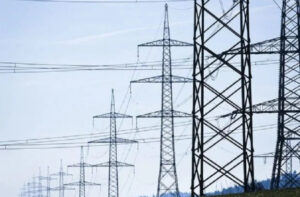Menu
Tokyo’s Inflation Rate Surges, Signaling Potential End to Negative Interest Rates
- Junnel G
- March 5, 2024
- 7:48 pm

In February, Tokyo witnessed a resurgence in core inflation, surpassing the Bank of Japan’s (BOJ) 2% target as the influence of government fuel subsidies waned. This uptick is a critical indicator that conditions might be aligning for an end to the era of negative interest rates in Japan. However, a nuanced view of inflation, specifically an index that excludes energy costs, reveals a deceleration, spotlighting the crucial need for substantial wage increases to sustain consumer spending.
The BOJ is poised to carefully evaluate these developments in its upcoming policy meeting scheduled for March 18-19. This scrutiny will be pivotal in determining the future trajectory of Japan’s extensive stimulus measures. The core consumer price index (CPI) in Tokyo, often seen as a precursor to nationwide trends, escalated by 2.5% year-on-year in February, aligning with analysts’ expectations. This increase follows a 1.8% rise in January, underlining the inflationary pressures within the economy.
Conversely, an alternative inflation measure, which further excludes the volatile sectors of fresh food and fuel, recorded a 3.1% rise from the previous year, marking a slowdown from January’s 3.3% increase. This slowdown, attributed primarily to a dip in processed food inflation, suggests a less widespread disinflationary trend within the economy.
Despite the nuanced inflationary landscape, experts like Marcel Thieliant, from Capital Economics, argue that the current data does not preclude the BOJ from reversing its negative interest rate policy in the near term. Japan’s economy has shown signs of strain, notably slipping into recession at the end of last year, driven by declines in corporate and household spending. Nonetheless, with inflation consistently breaching the 2% mark for an extended period and the anticipation of significant wage growth, there’s mounting speculation among market observers regarding the BOJ’s potential shift away from negative interest rates by April.
BOJ Governor Kazuo Ueda has expressed caution, indicating it might be premature to assert that inflation is on a sustainable path to meet the central bank’s target. However, he acknowledges the moderate recovery underway and the optimistic wage growth projections. The BOJ’s current policy aims to maintain short-term interest rates at -0.1% and the 10-year government bond yield at approximately 0%, as part of its broader strategy to stimulate growth and achieve stable inflation.
#Top Tags COVID Covid-19 Technology Finance Investing Sustainability Economy

Subscribe to Our Newsletter and get a free pdf:



















Comments are closed for this article!